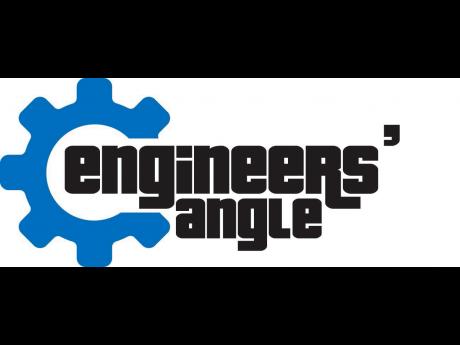Engineers’ Angle | Accreditation clarity needed
Recently, accreditation has been the subject of much of discussion across the island.
Most of the discussions have been centred around the University of Technology (UTech), Jamaica, specifically, the number of programmes accredited and the benefits of institutional accreditation as opposed to programme accreditation.
It has been noticed that the University Council of Jamaica (UCJ) has been silent on the matter.
However, seeing that the UCJ is the executive agency formed by an act of Parliament and has the responsibility to accredit academic programmes in Jamaica, it is its responsibility to break its silence, set the record straight, and inform the Jamaican public about accreditation.
The UCJ should address the subject of 'institutional accreditation' as opposed to 'programmatic accreditation' for the benefit of the Jamaicans who are deciding on their career options and the programme or institution where they can get maximum return on their investment.
VOLUNTARY STATUS
The first point is that accreditation should be voluntary, in other words, the State, or the Government should not mandate the accreditation of academic institutions or programmes.
The management of institutions should have the right to decide whether they want to have the institution, or the programmes, accredited, and the option of the accrediting body should also be theirs.
By doing so, management could decide whether to offer inexpensive unaccredited programmes in an accredited institution or more expensive accredited programmes in an unaccredited institution. Let it be understood that there is full support for accreditation, be it institutional or programmatic, but the decision on the type of accreditation should be the prerogative of academic management boards.
It should be noted that accreditation is an expensive process that can tie up valuable resources in institutions, and the bulk of the cost of accreditation is commonly passed on to students when institutions make the commitment to this type of quality system.
If accreditation is mandated by the Government, it should be prepared to offset the associated cost that is forced on institutions.
Returning to the issue of institutional accreditation as opposed to programmatic accreditation, the public should be aware that professional bodies that require registration or the licensing of individuals to practise, will soon have to consider, if they have not yet done so, stipulating that applicants should be from accredited programmes and not necessarily from accredited institutions.
In other words, institutional accreditation by itself cannot guarantee the quality of programme and, therefore, invariably, programme accreditation is the requirement for registration in regulated professional bodies.
Institutional accreditation can facilitate the process of programme accreditation and will indicate that the institution is committed to high academic and administrative qualities and standards but cannot speak to the quality of every programme in the institution.
For engineering, the Professional Engineers Registration Board (PERB) is the body that regulates the engineering profession in Jamaica, including the registration of engineers and the approval of engineering programmes.
However, the PERB collaborates with the UCJ to ensure that engineering programmes accredited by the UCJ would also satisfy PERB requirements.
To be registered as a professional engineer in Jamaica the applicant must be a graduate of an accredited engineering programme. The accreditation can be from a professional body such as the Accreditation Board for Engineering and Technology in the United States, Canadian Engineering Accreditation Board, any professional institutions licensed by the Engineering Council of the United Kingdom, any other signatory of the Washington Accord, or from a national accreditation body such as the UCJ.
WASHINGTON ACCORD
The Washington Accord is an international agreement among bodies responsible for accrediting engineering degree programmes, which was signed in 1989.
A somewhat similar situation exists for the local Architects Registration Board where applicants for registration are required to have professional qualification in architecture from programmes accredited by the Commonwealth Association of Architects or its equivalent.
In this situation, graduates from architecture programmes with only institutional accreditation will not qualify for registration as architects.
The Caribbean Accreditation Authority for Education in Medicine and other Health Professions was established in 2003, under the aegis of CARICOM, to ensure that the education programmes for medicine and other health professions offered by academic institutions in participating countries are recognised nationally and regionally, and are of international standard.
Likewise, whether the institutions offering these programmes are accredited or not, the programme must be accredited to guarantee recognition.
With regard to engineering, it was stated earlier that applicants are required to have academic qualifications from universities with accredited engineering programmes and that recognition is given to programmes meeting specified quality as validated by UCJ and other approved accrediting bodies.
However, the way forward is to place greater emphasis on programmes accredited by international engineering accrediting bodies so as to work jointly with the international community to guarantee mobility of graduates in the global work space.
The PERB has already taken steps towards this end.
- Professor Noel Brown is the vice-president at the Caribbean Maritime University with responsibility for technology and innovation. He is also a past president of JIE and immediate past chairman of PERB. Send questions and comments to, editorial@gleanerjm.com or jie@cwjamaica.com.



